Grammar Worksheets for Ages 3-7 - Page 3
160 filtered results
-
From - To
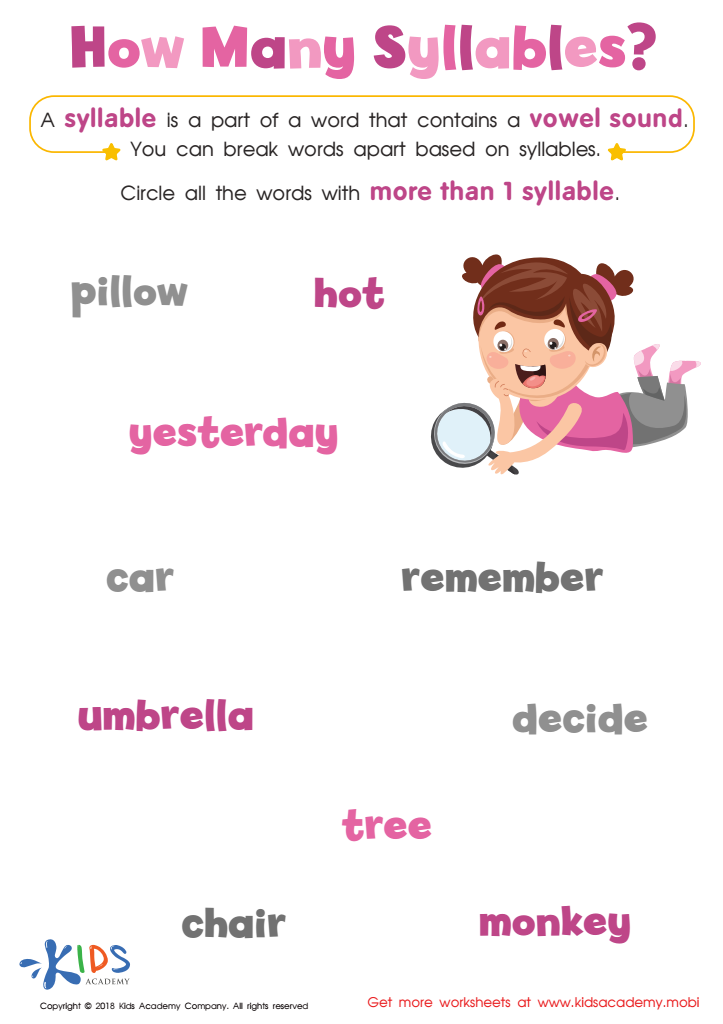

Reading: How Many Syllables Worksheet


Short Vowels /e/, /i/, and /u/ Worksheet
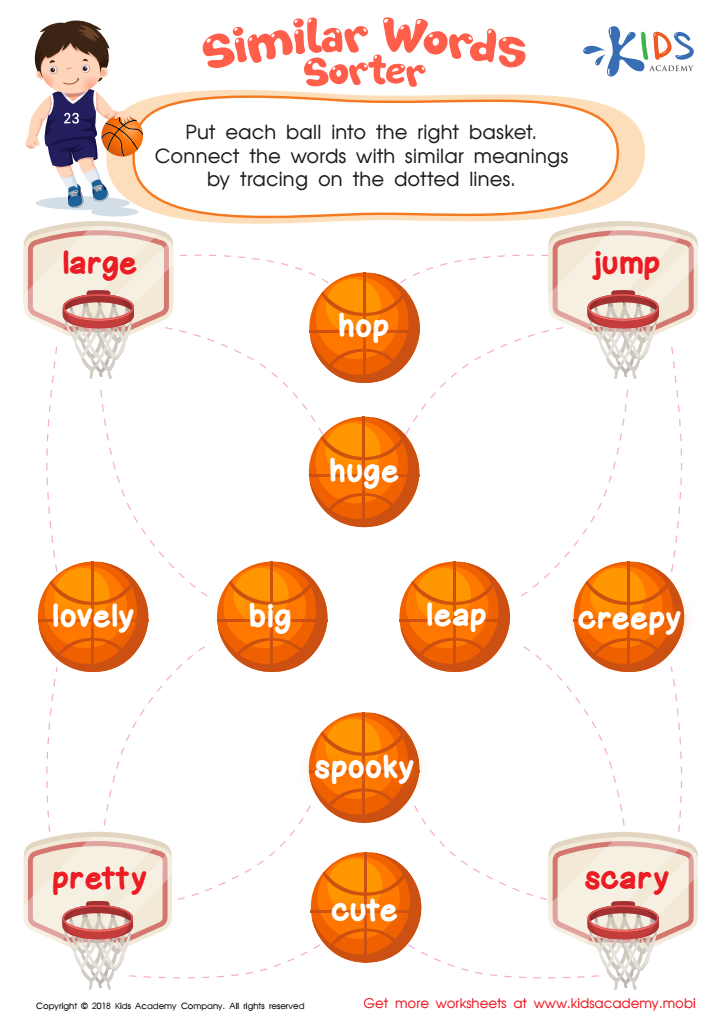

Similar Words Worksheet


Let's Practice Compound Words Word Structure Worksheet
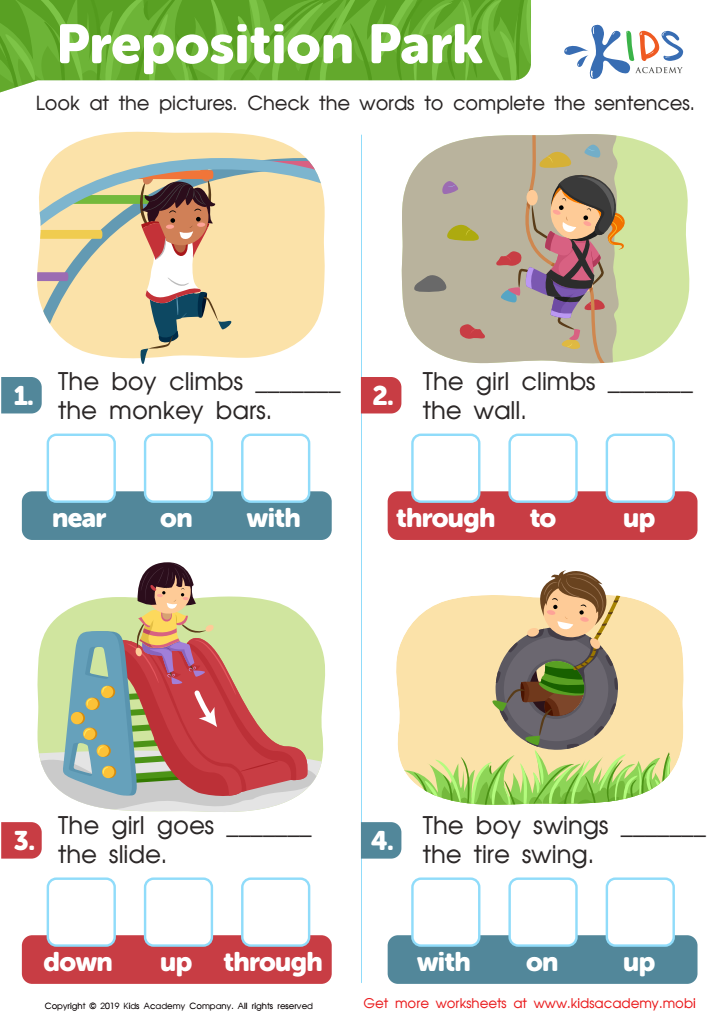

Preposition Park Worksheet
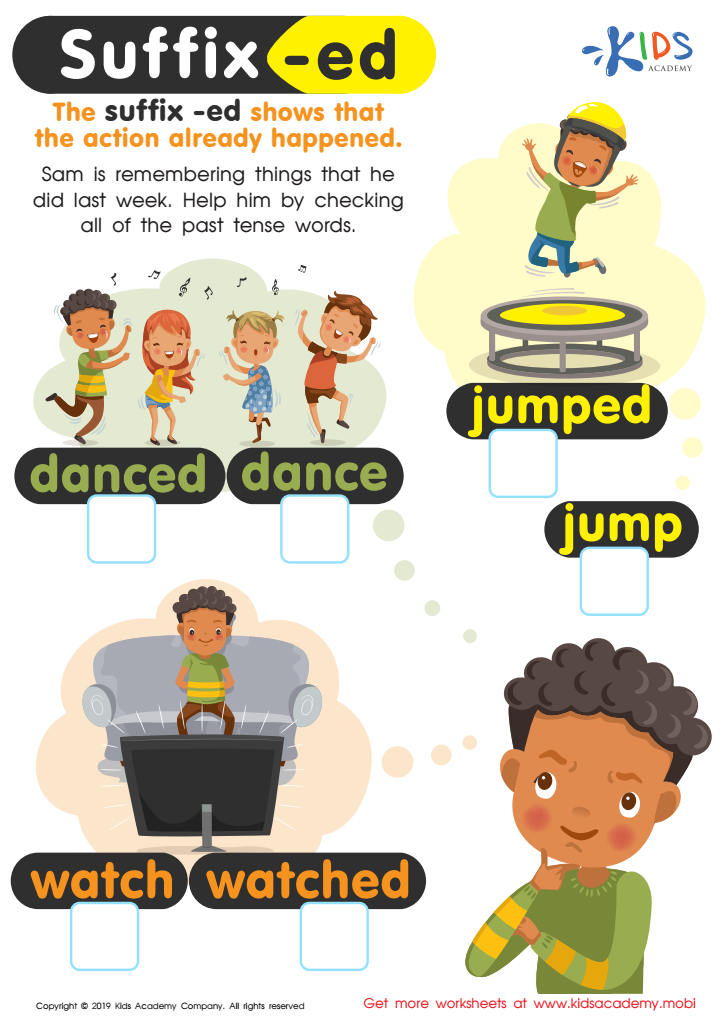

Suffix-ed Worksheet
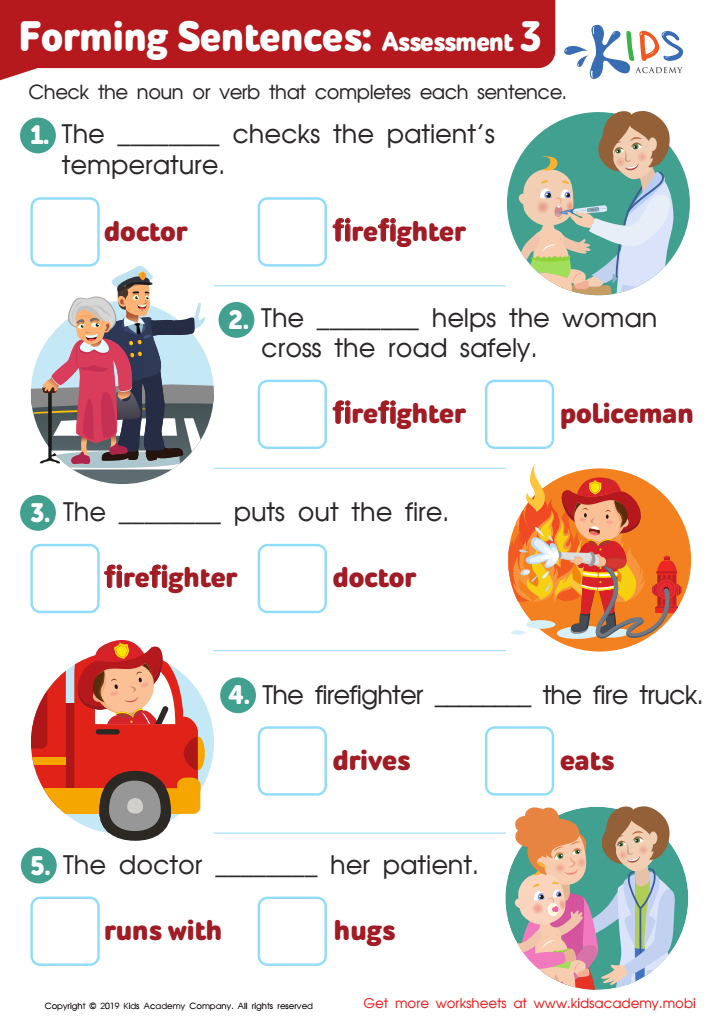

Forming Sentences: Assessment 3 Worksheet
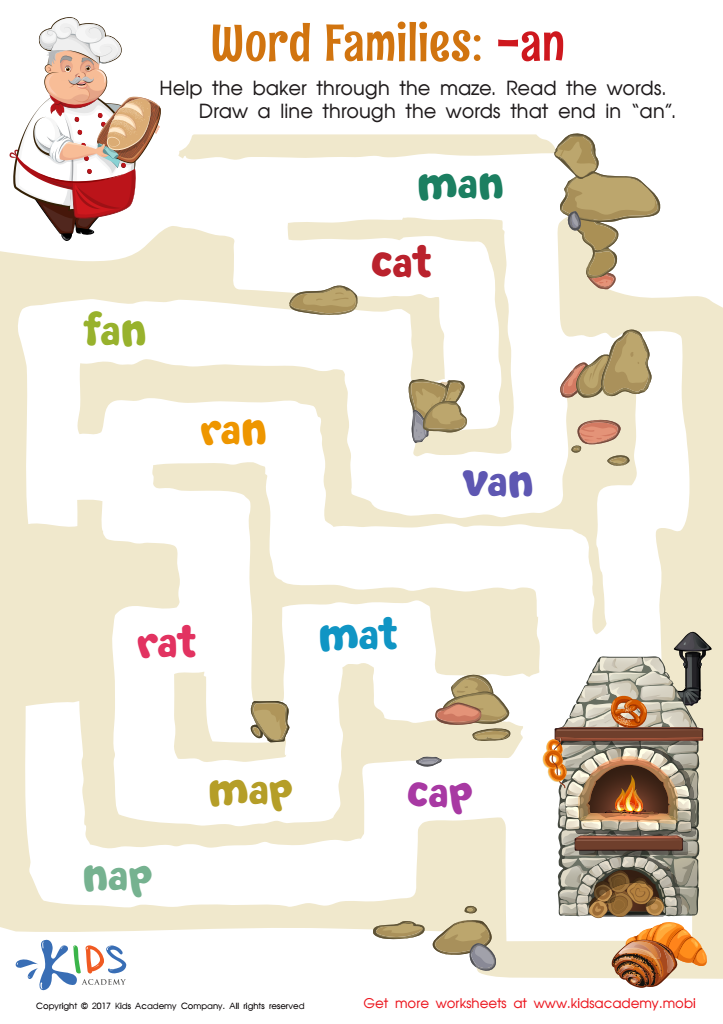

Words Families "an" Spelling Worksheet
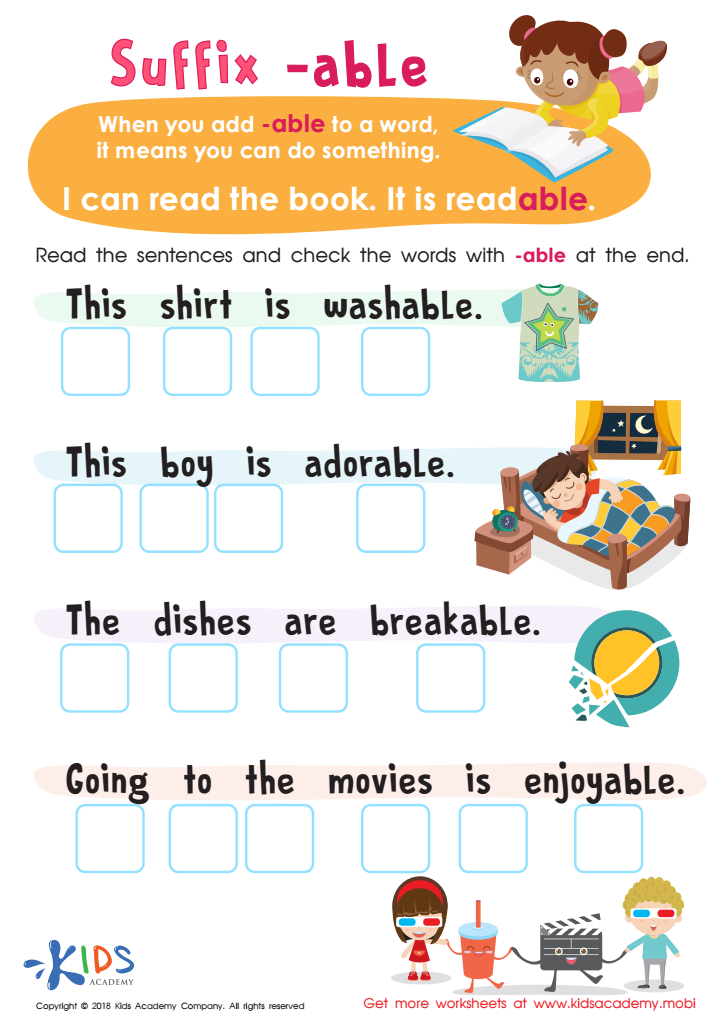

Suffix -Able Worksheet
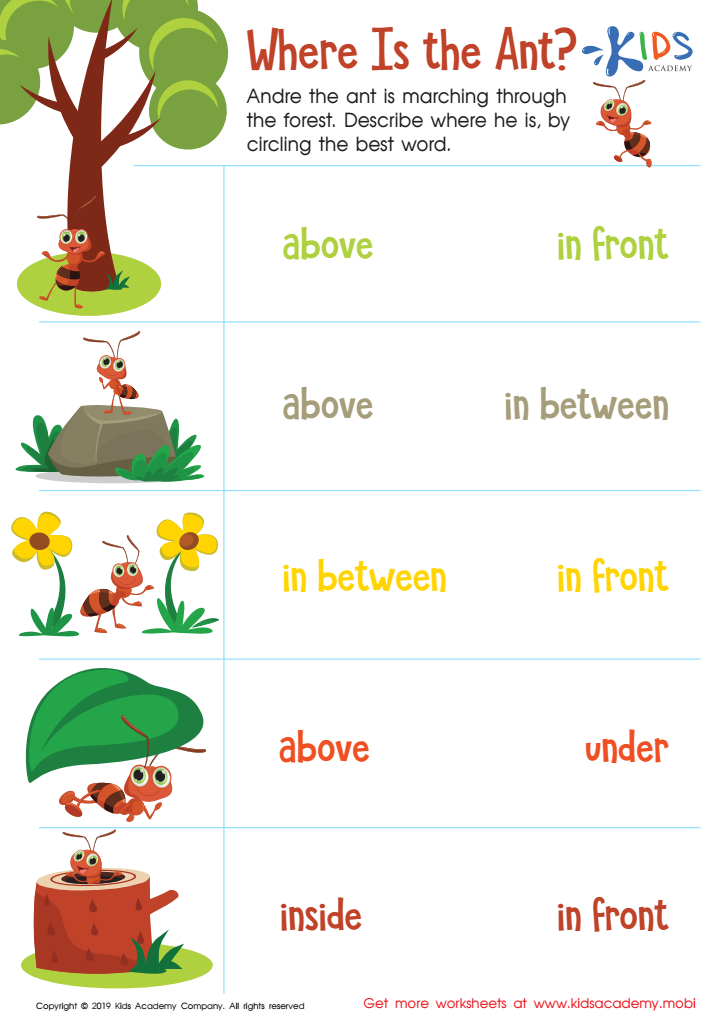

Where Is the Ant? Worksheet
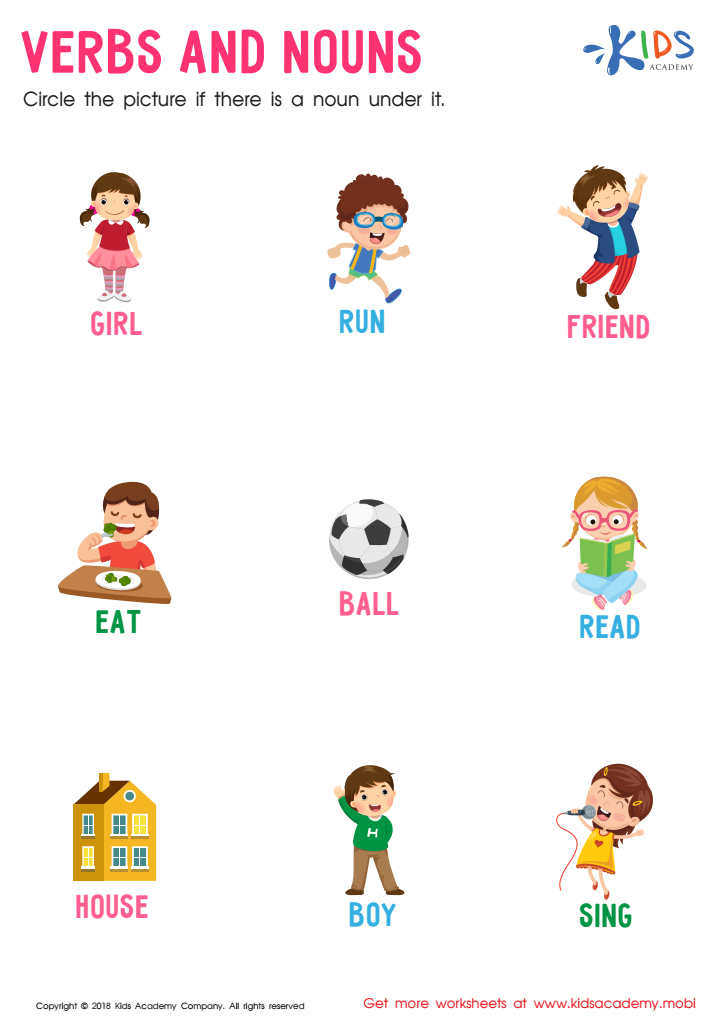

Verbs and Nouns Worksheet
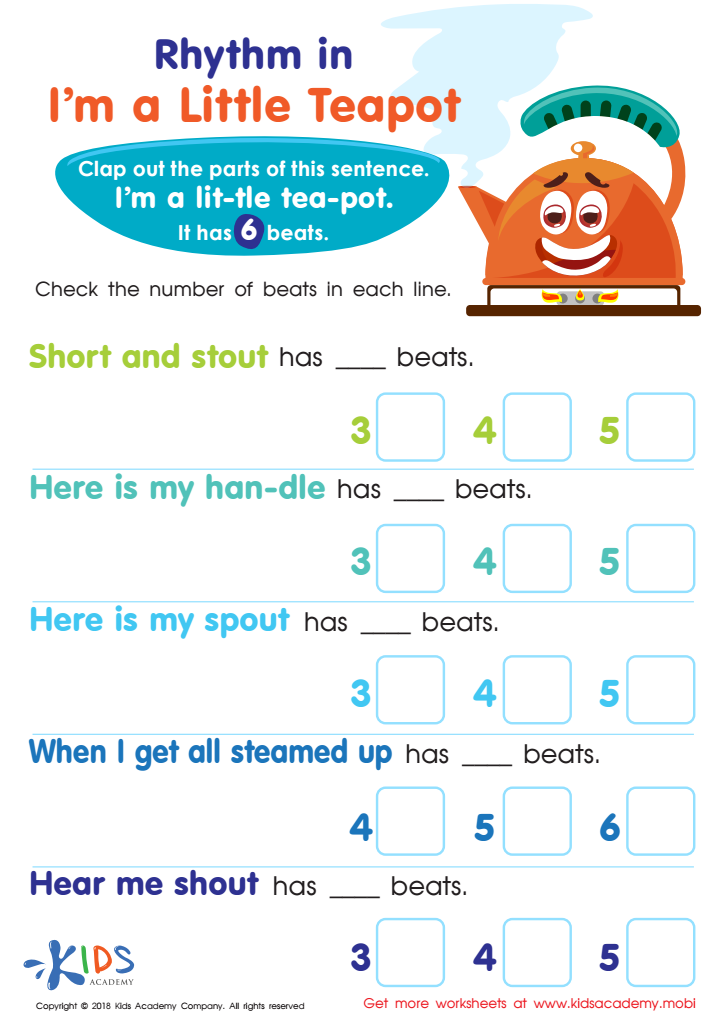

Rhythm in I'm a Little Teapot Worksheet
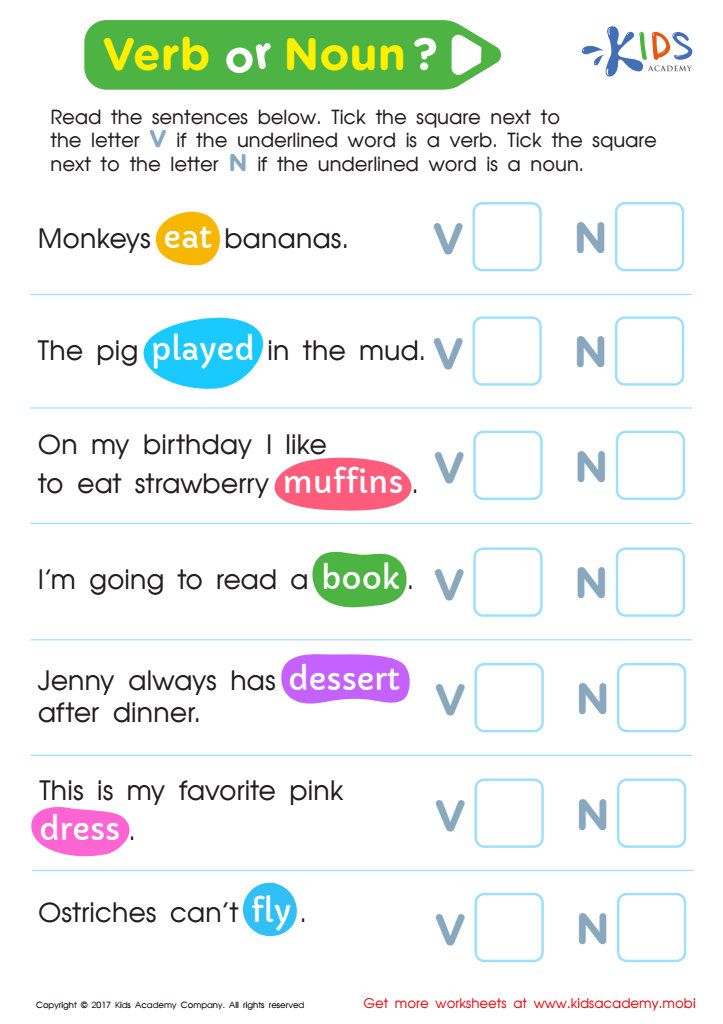

Verb or Noun Worksheet


Dinner Time! Worksheet


Long Vowel Maze /o/ and /i/ Worksheet
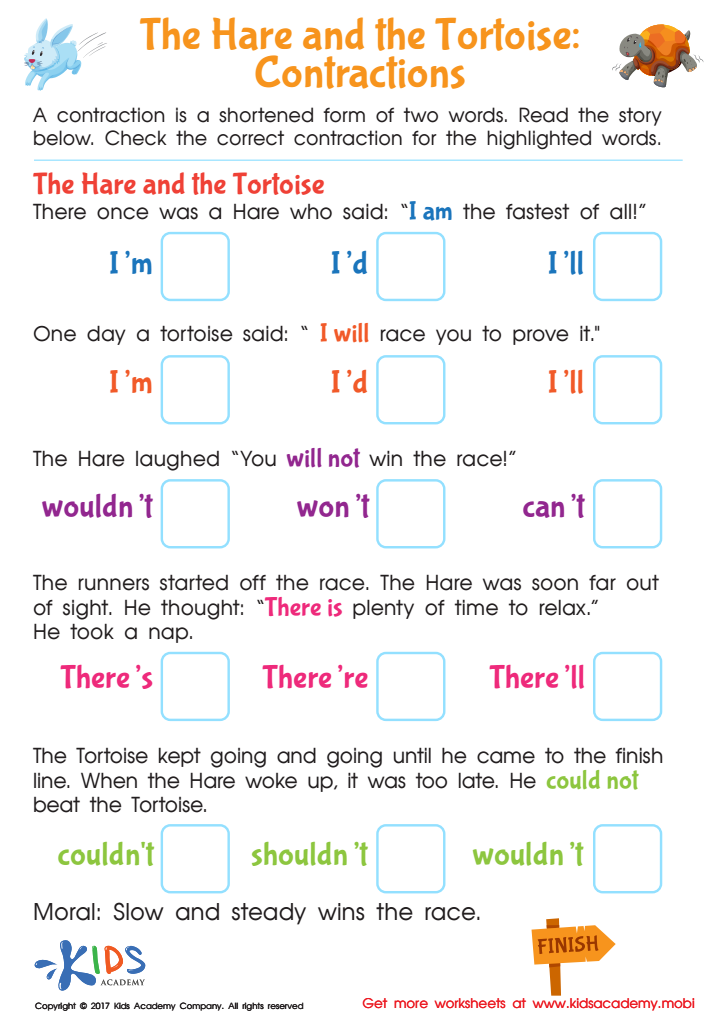

Contractions Worksheet
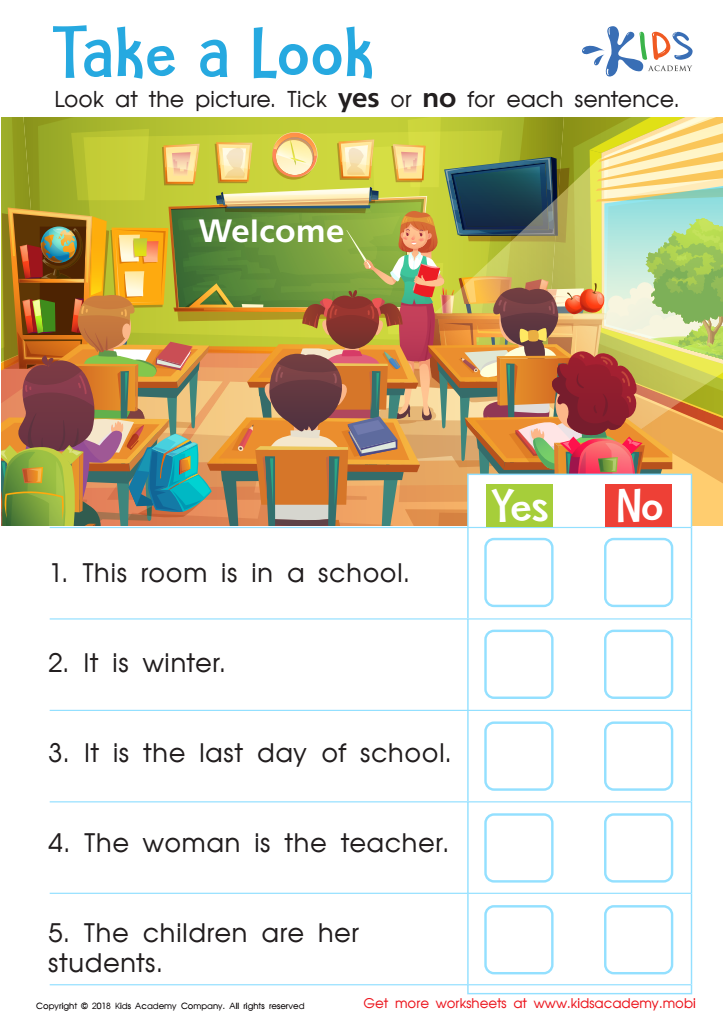

Take a Look - Part 2 Worksheet
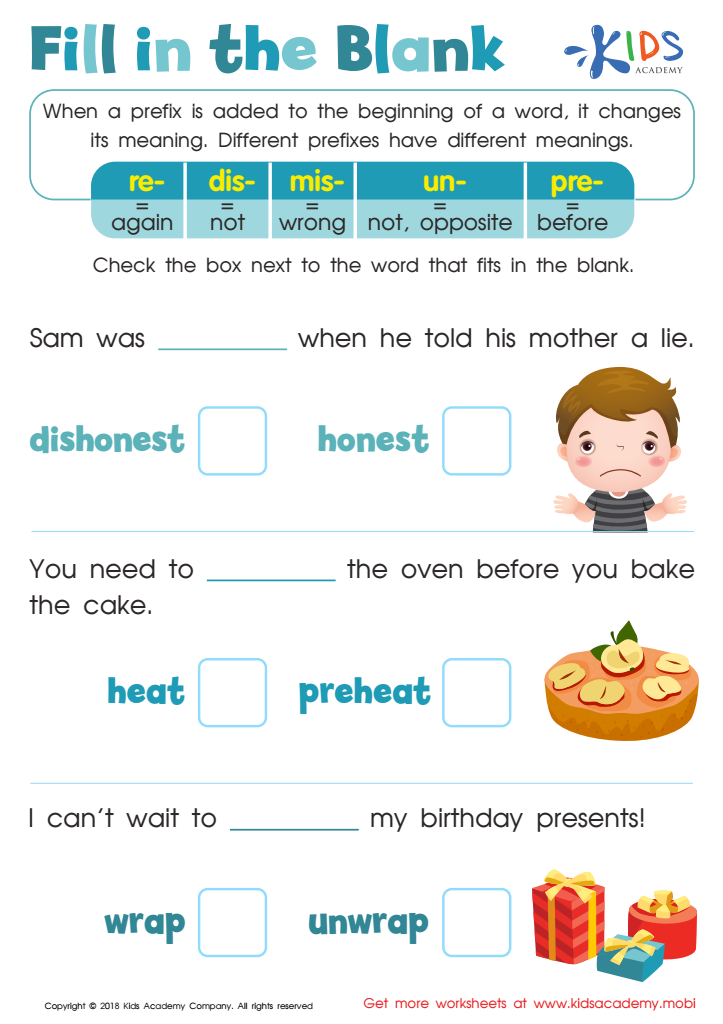

Reading: Fill in the Blank Worksheet
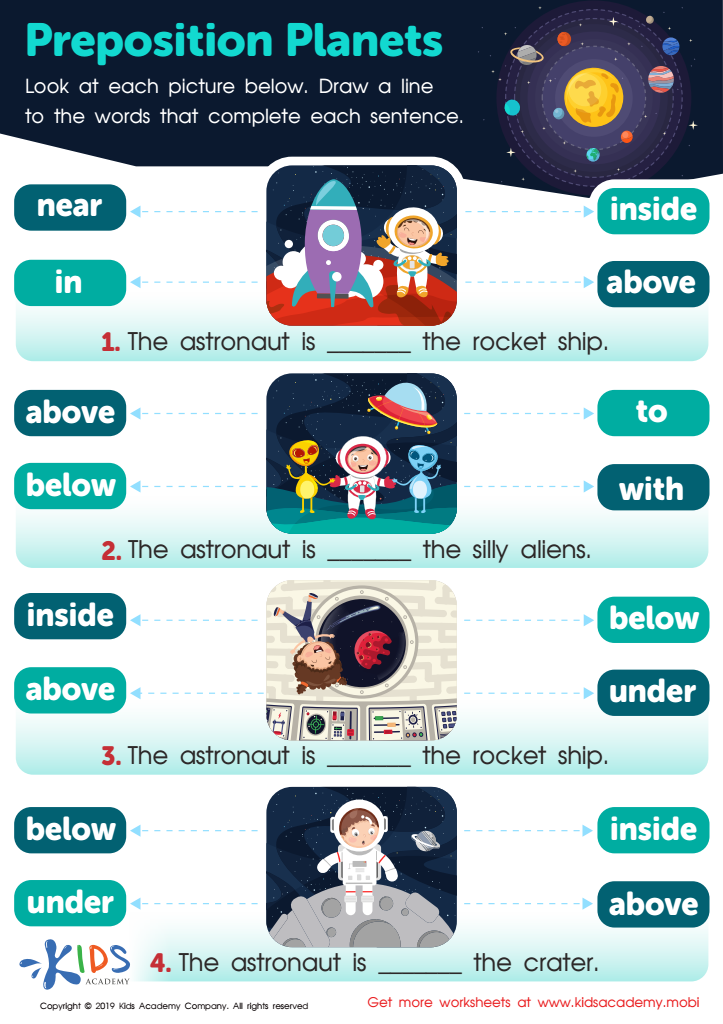

Preposition Planets Worksheet
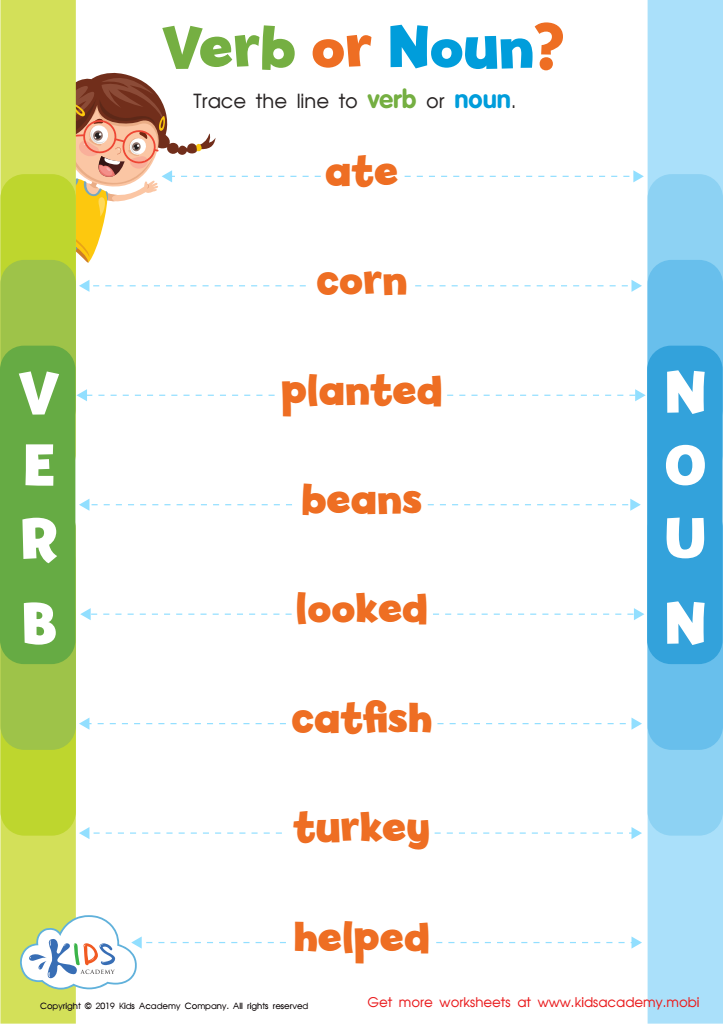

Verb or Roun Worksheet


Sight Words with Blends Worksheet
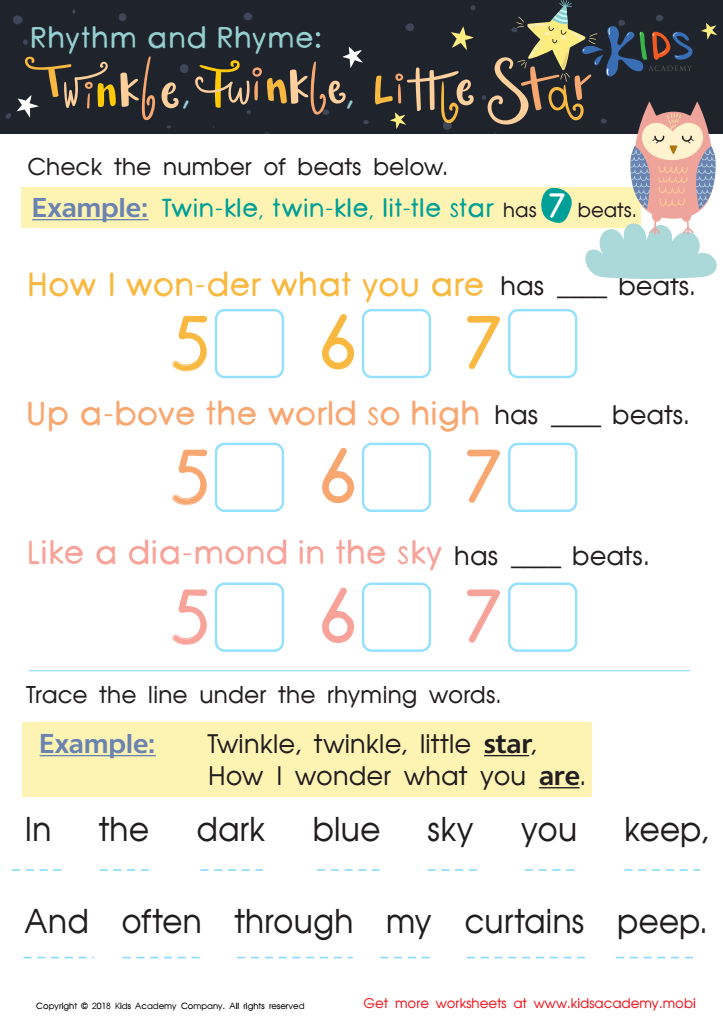

Rhythm and Rhyme: Twinkle, Twinkle, Little Star Worksheet
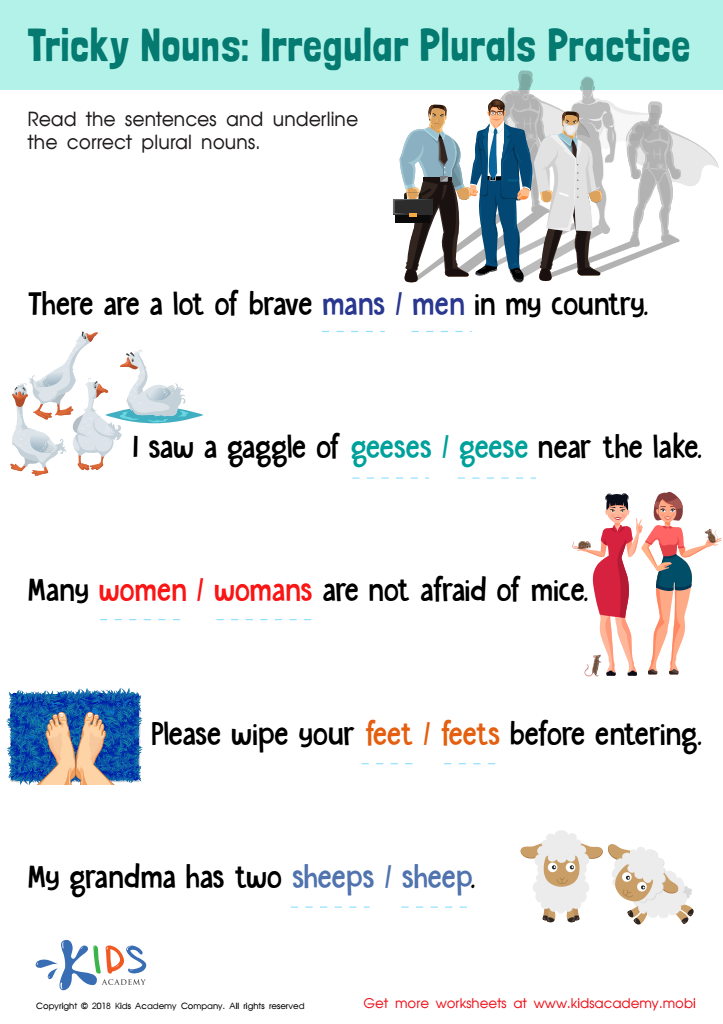

Tricky Nouns: Irregular Plurals Practice Worksheet


Find The Verbs: -ed Ending Worksheet
Parents and teachers should prioritize grammar for children aged 3-7 for several important reasons. Initiating grammar education at an early age fosters a strong foundation for effective communication. During these formative years, children are developing their language skills rapidly, making it the perfect time to introduce concepts of sentence structure, word usage, and punctuation. Understanding grammar helps children express their thoughts clearly and accurately, enhancing their ability to engage in conversations and share ideas.
Moreover, early grammar education supports reading and writing skills. As children learn to identify parts of speech and sentence patterns, they become better readers, aiding their comprehension. Good grammar skills can also ease the writing process as children begin to write their own stories and ideas, encouraging creativity while enhancing self-expression.
Furthermore, strong grammar knowledge is vital for academic success later in life. It promotes critical thinking, as children learn to construct and deconstruct sentences, recognizing how language functions. With 21st-century skills increasingly important, these foundational principles can foster better collaboration and communication with peers.
In conclusion, investing in grammar education at an early age not only aids language development but sets the stage for lifelong learning and effective participation in society.
 Assign to My Students
Assign to My Students
















